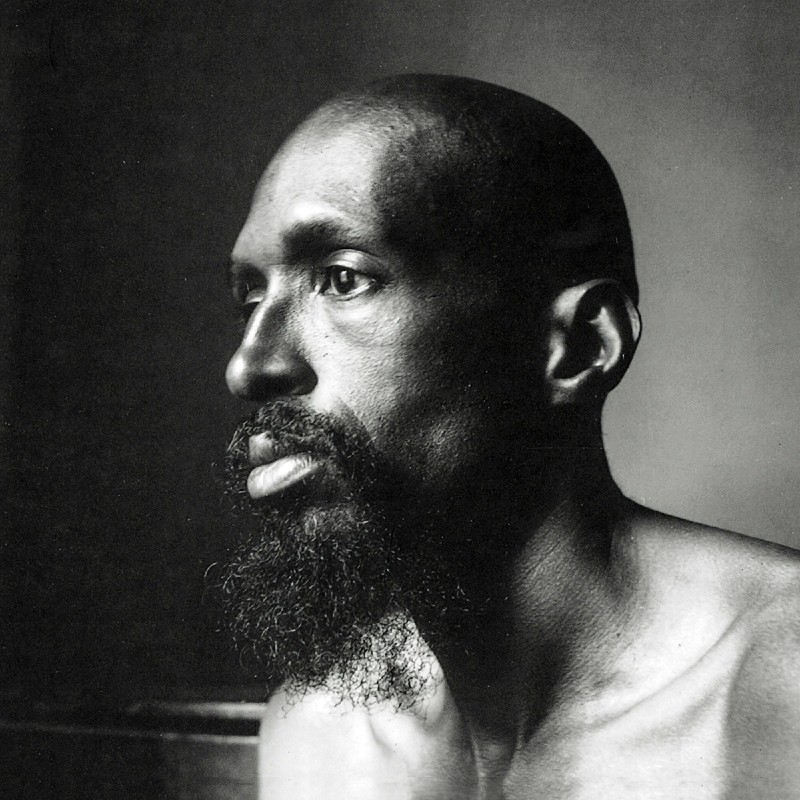For Him the Bells Toll: Wild Up performed Julius Eastman’s "Feminine" at Rackham Auditorium

The sound of countless bells, gentle and cloudlike, opened Los Angeles-based chamber ensemble Wild Up’s presentation of Julius Eastman’s Feminine in Ann Arbor’s Rackham Auditorium on the afternoon of Sunday, April 17, as part of UMS’s 2022-23 season.
The bell choir—made up of Wild Up’s members, local musicians, and students from the University of Michigan School of Music, Theatre & Dance—lined the auditorium’s semicircular back. Set against the room’s painted ceiling, in which a darkening night sky extends outward from an intricately designed sun centered above the stage, the bells became stars. Their ringing emerged from darkness once the hall lights dimmed, and the enveloping sound welcomed the gathered concertgoers to an astonishing performance.
Julius Eastman (1940-1990) was a gay, African-American composer and performer whose career involved collaborations with titanic figures in 20th-century classical music such as Peter Maxwell Davies, John Cage, Meredith Monk, Morton Feldman, and others. Yet Eastman struggled to find sustained support from his colleagues and the musical institutions with which he interacted. When he died in 1990, it took eight months for a public notice of his passing to be published, and his legacy as a composer faced similar precarity.
Wild Up is an international leader in the contemporary effort to revive, record, and perform Eastman’s compositions. The ensemble's performance on Sunday confirmed all the praise it has received for the Julius Eastman Anthology project it launched four years ago.
The group’s joyous and nontraditional ethos, epitomized by conductor Christopher Rountree, makes it ideally suited to honor Eastman’s music, which is often scored for unusual instrumentations, calls on performers to improvise, and is not always conventionally notated. Sunday’s concert, which was Wild Up’s UMS debut, saw Rountree joined by a large and eclectic ensemble of 16 musicians: mostly strings and saxophones, with additional flute, percussion, keyboards, and vocalists, some of whom doubled on instruments.
The performance began with the musicians playing bells, but nobody was on the stage. Over the course of Feminine (1974), Wild Up’s members—including Rountree, who only conducted for part of the piece—came to the stage and departed for the back of the hall, most memorably with vocalist Odeye Nini who appeared once to deliver a stunning solo. This style of presentation not only embraced Rackham Auditorium’s unique layout, it also underscored the extraordinary nature of Eastman’s music, which made the concert a stirring tribute to Eastman’s compositional voice.
Feminine displays the distinctive expansiveness of Eastman’s music. It fills space, it takes time, it has something enormous and beautiful to say. While other minimalist music of this era can express its commitment to iterative musical processes with austere aesthetics, Eastman conveys fundamentally simple musical ideas with grandiosity.
Wild Up’s outstanding performance lasted 70 minutes and conveyed joy, introspection, and power. At its heart, the piece revolves around the concatenation of two short melodic ideas that individually emerge, recede, and, near the end, merge into a single phrase. There is also so much more to the music. In Wild Up’s capable hands, Feminine amazed with variegated instrumental textures, ecstatic solos, and stunning moments of congregation that united the ensemble’s seemingly independent parts into singular musical statements.
As I listened, I was struck by Feminine’s multilayered expression of time, which is an exceptional characteristic of all of Eastman’s music. Every moment of Wild Up’s playing was vibrant, and these instances combined to fill longer periods framed by the journey of the aforementioned pair of central melodic ideas. This interconnected short- and medium-term action is contained by the bells, which sound throughout, creating a three-part experience of musical time.
Although only prominent at the beginning and end of the work, the bells’ drone reminded me of where my journey with Feminine began, and underscored how far Wild Up’s incredible performance transported me.
Garrett Schumann is a composer and music scholar who teaches in the University of Michigan’s College of Literature, Sciences & the Arts. His other writings have been published in The New York Times, Grove Music, and VAN Magazine.
Visit ums.org to see upcoming events in the 2022-2023 season as well as the full schedule for 2023-2024.


































